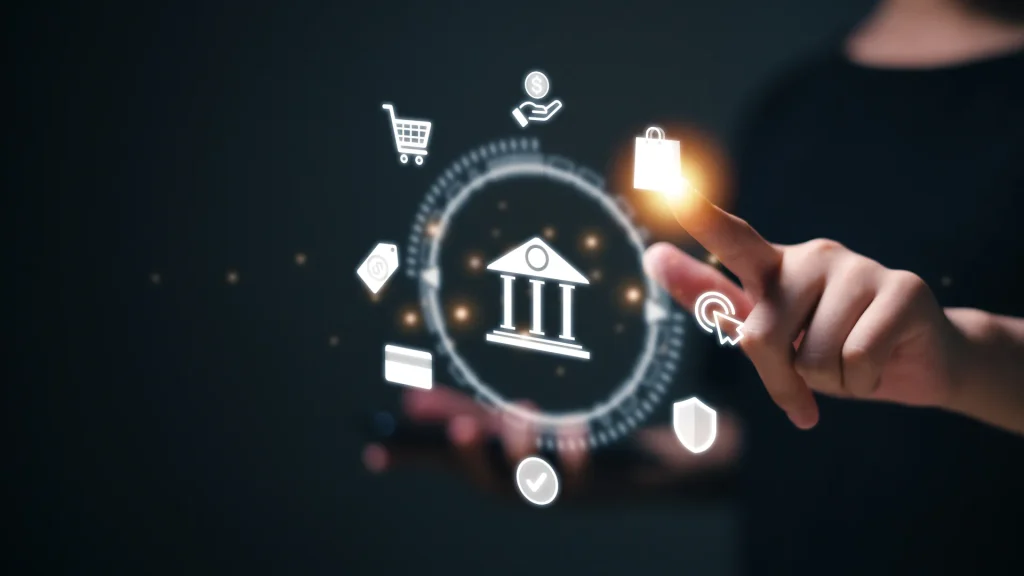When most people hear the word “blockchain,” their minds immediately jump to cryptocurrencies like Bitcoin and Ethereum. While blockchain is indeed the backbone of the crypto world, its potential stretches far beyond digital currencies. At its core, blockchain is a decentralized, immutable ledger that allows secure, transparent, and tamper-proof recording of information. These unique characteristics are revolutionizing industries across the globe, transforming how businesses operate, and reshaping consumer trust.
1. Supply Chain and Logistics

One of the most promising applications of blockchain outside of crypto is in supply chain management. Traditional supply chains are often complex, involving multiple intermediaries, which can lead to delays, inefficiencies, and fraud. Blockchain provides a solution by offering end-to-end transparency. Every step of a product’s journey, from raw materials to the store shelf, can be recorded on a blockchain. This ensures authenticity, prevents counterfeit goods, and allows stakeholders to trace products in real time.
For instance, major companies like Walmart and Nestlé have already implemented blockchain solutions to track food products, ensuring faster recalls and increased food safety. By creating a permanent and verifiable record, blockchain enhances accountability throughout the supply chain.
2. Healthcare and Medical Records
Healthcare is another sector where blockchain is making significant strides. Patient records are often fragmented across different hospitals and clinics, leading to inefficiencies and errors. Blockchain allows for secure and interoperable health data management. By storing medical records on a decentralized ledger, patients can have greater control over their data while ensuring that authorized healthcare providers can access accurate information quickly.
Beyond record-keeping, blockchain can also facilitate the tracking of pharmaceuticals, preventing counterfeit drugs from entering the market. In clinical trials, blockchain ensures the integrity of research data, increasing trust in findings and reducing the risk of fraudulent reporting.
3. Real Estate and Property Transactions

Buying or selling property is notoriously slow and paperwork-heavy. Blockchain technology is streamlining these processes by digitizing property records and enabling smart contracts. A smart contract is a self-executing agreement with the terms directly written into code, automatically enforcing the contract once conditions are met.
Through blockchain, property ownership records can become immutable and easily verifiable, reducing disputes and fraud. It also simplifies cross-border transactions, making real estate more accessible globally. Countries like Sweden and Dubai are experimenting with blockchain to modernize property registries, demonstrating the potential to reduce bureaucracy and costs significantly.
4. Voting and Governance
One of the most critical aspects of any democracy is voting integrity. Traditional voting systems are prone to manipulation, human error, and low transparency. Blockchain-based voting systems offer a secure, tamper-proof way to conduct elections, ensuring every vote is counted accurately and transparently.
Blockchain voting can also increase accessibility, allowing citizens to vote remotely without compromising security. Trials in countries such as Estonia and Switzerland have demonstrated that blockchain can significantly enhance voter trust and participation.
5. Intellectual Property and Digital Rights Management
Artists, musicians, and content creators often struggle with piracy and improper attribution of their work. Blockchain provides a solution through digital rights management, where each piece of content can be uniquely registered on the blockchain. This ensures that ownership is clear, royalties are distributed fairly, and creators maintain control over their intellectual property.
Platforms leveraging blockchain can automate royalty payments through smart contracts, reducing delays and disputes. This transformation is opening new revenue streams for creative industries and fostering an environment where creators are more fairly compensated.
6. Banking and Financial Services

Although banking is closely tied to cryptocurrencies, blockchain’s impact extends beyond digital coins. Traditional banks are using blockchain to streamline payments, reduce fraud, and cut down processing times for international transactions. With blockchain, cross-border payments can be executed in minutes rather than days, and the risk of errors or double-spending is minimized.
Additionally, blockchain facilitates decentralized finance (DeFi) applications, allowing peer-to-peer lending, borrowing, and investment without intermediaries. This is democratizing financial services, particularly in regions with limited access to traditional banking infrastructure.
Conclusion
Blockchain is no longer just the technology behind Bitcoin; it is becoming a transformative force across industries. From supply chains and healthcare to real estate, voting, and digital rights, blockchain offers transparency, security, and efficiency in areas historically plagued by inefficiency and fraud. While widespread adoption is still underway, the momentum is undeniable. Organizations that embrace blockchain’s potential today are likely to gain a competitive edge, fostering innovation and trust in the digital age.
The real revolution lies not in currency but in trust—the decentralized, verifiable trust that blockchain can bring to industries far beyond crypto. As businesses continue to explore this technology, the landscape of commerce, governance, and daily life could be fundamentally reshaped in ways we are just beginning to imagine.

